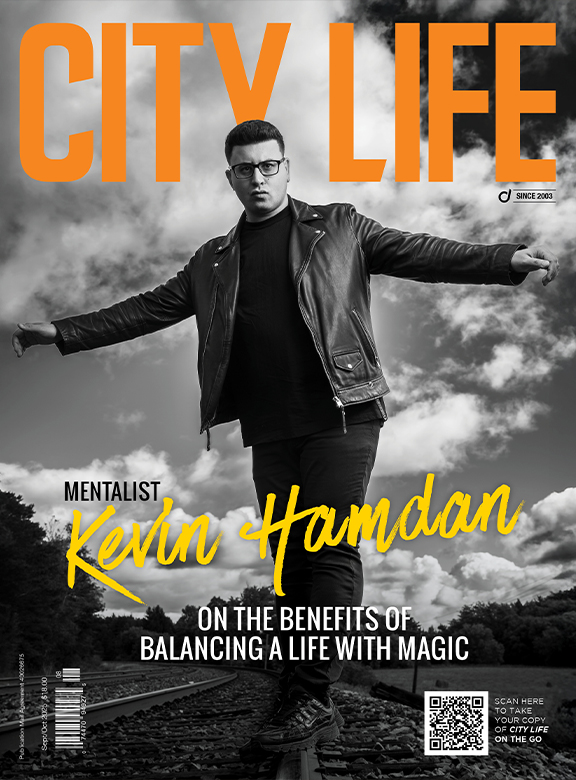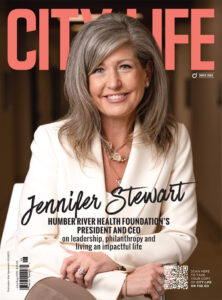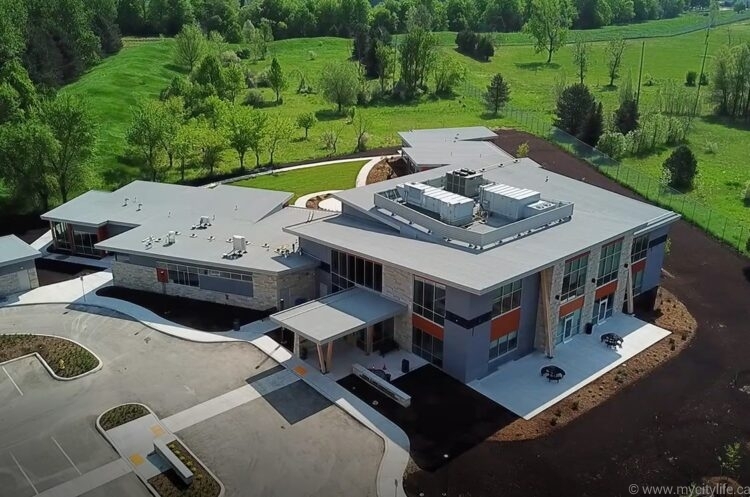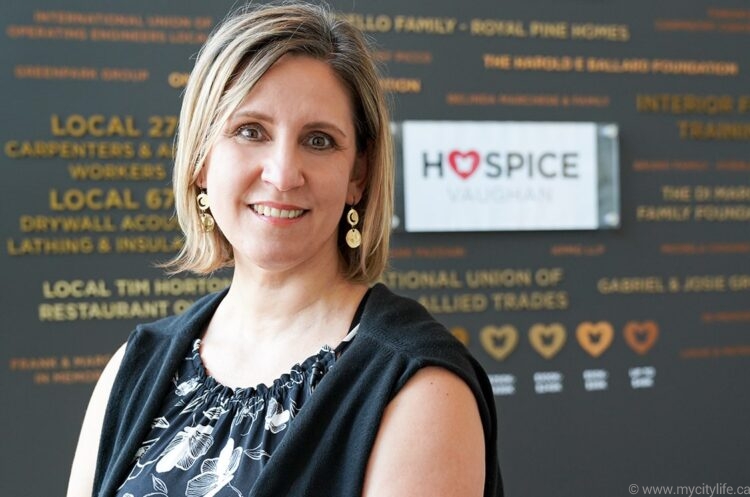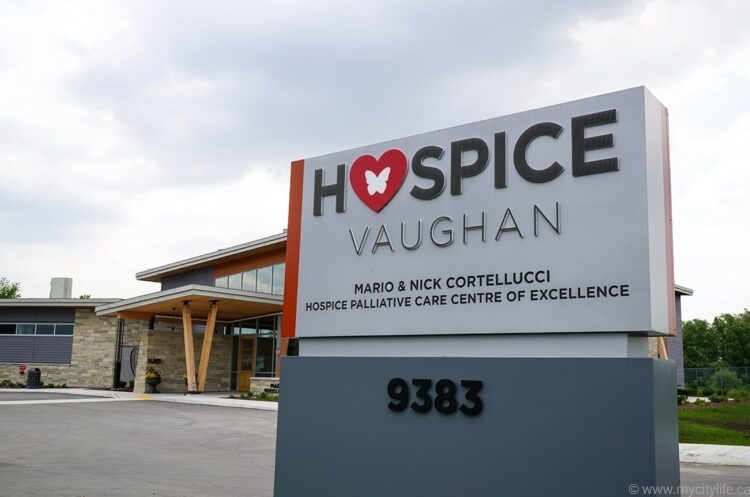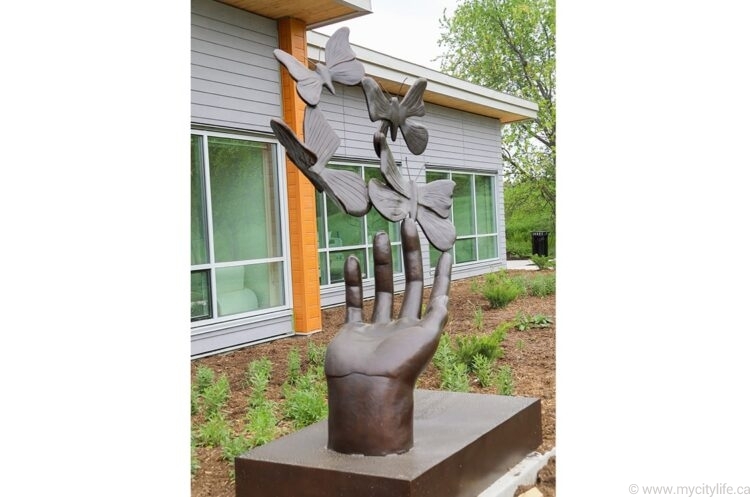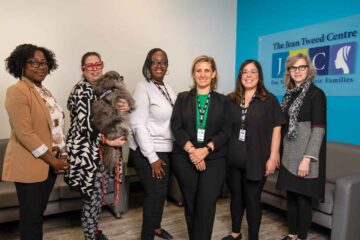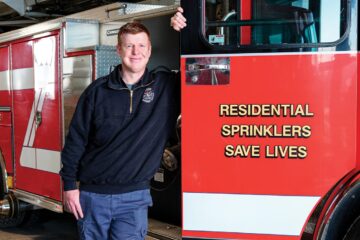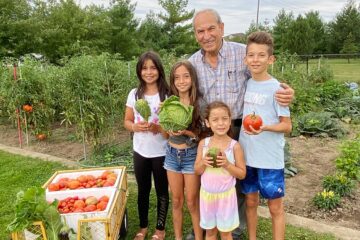Belinda Marchese: A Hospice With Heart
For more than 25 years, the staff and volunteers at Hospice Vaughan have led with compassion. Having just opened a new 10-bed location, their work is more important than ever.
It takes only one conversation with Belinda Marchese, executive director of Hospice Vaughan – The Mario & Nick Cortellucci Hospice Palliative Care Centre of Excellence, to get a sense of the impact the hospice and local community is having and the work they’ve been doing for more than two decades. She shares the story of the place, from its tiny office in the basement of a library and initial support from locals in Vaughan, to the opening of its stunning new location on Islington Avenue.
With space for families to visit, sleep over and spend time with loved ones in any way they choose, be it with art, music or something else, looking across stunning greenery donated by the Toronto and Region Conservation Authority, it’s a space for people to spend their closing moments in life, overflowing with compassion, care and understanding.
“The component of care within the philosophy of hospices is to embrace the whole person,” Marchese says. “It’s not just focused on the medical components of care. It embraces their emotional well-being, psychological well-being, spiritual well-being and also anticipatory grief. The philosophy of the hospice is to support the quality of life of the individual throughout the journey. You’re not defined by your illness or death. You’re defined by who you are.”
This idea of supporting people through the journey is important for Marchese and everyone at the hospice, and she notes how the etymology of the word shares meaning with hospitality. “We’re here to help you early, through your diagnosis, illness, and then when it’s time for your final journey, either at home or here in this residence. We’re going to take care of you,” Marchese says. “You can hold their hand, pray with them, sing with them, be quiet with them. It’s up to you and the person. We reduce the burden and help the transition with dignity and peace.”
It’s important to note that this isn’t care that starts and ends with the person in the hospice. Rather, it extends to the family and beyond. “We take care of the person who is ill, but also the family, friends and caregivers around that person,” Marchese continues. “Formal research will show that most of the caregiving is done by that support system.”
Marchese explains that, while the hospice movement is fairly new, beginning in the 1970s, Hospice Vaughan wouldn’t be what it is today without the generous support of all the people who work there and the community that funds it.
Hospice Vaughan’s volunteers share their time; they have to undergo 40 hours of training to help with everything from physical care to mental support. While some of these volunteers have been with the hospice a year, others have been there since 1995. They vary in age and background, but are united by a singular belief that kindness and compassion is key.
“The volunteers regularly say, ‘I came here to help others,’ so they learn empathy, communication skills, cultural humility, diversity and family dynamics, which are all good life skills for anybody,” Marchese says. “But, all the volunteers say those in the hospice teach us more than we could ever imagine giving to them. I could tell you some of the most incredible people I’ve met are those the hospice has exposed me to.”
“All the volunteers say those in the hospice teach us more than we could ever imagine giving to them”
The local community has its part to play as well, with Marchese sharing that 88 per cent of the hospice funding for community program operations comes from the community. Without them, Vaughan Hospice wouldn’t be possible. She talks of the generosity of the province, the mayor and neighbourhoods in fuelling the growth the hospice has seen over the years. As she says, “between the professional staff, volunteers, family members, community friends and partners, it’s all part of the village. It simply takes a village.”
What’s perhaps missed and most misunderstood is that everything the hospice offers is available for free. While Marchese is the first to admit that there’s a disparity around that because the information isn’t always easily accessible, it’s what shapes her answer when asked where she sees Hospice Vaughan heading in the next decades. “The community will tell us what they need,” she says, talking of building more support around the program and more residences in different parts of Vaughan, but adds, “I don’t want to ever get a phone call or have a conversation saying, ‘if I only knew.’ You need to know that a hospice is part of your community.”
www.hospicevaughan.com
@hospicevaughan
INTERVIEW BY ESTELLE ZENTIL
